In the past I’ve been able to grow pumpkins and other hard winter squashes using a practice of benign neglect. The pumpkin patch is dug over in the spring, compost added, plants set into the ground and then the whole thing is ignored until harvest. One can get rather smug about one’s systems until things go horribly wrong, as they finally have done this summer.
Over the summer, the plants flourished. There was a jungle of huge pumpkin leaves. Weeds sprang up, too. Bees hummed. Sure, there were a few squash borers, but the plants still thrived. Squash were spied in the lush undergrowth. In the last few weeks, the plants wilted, from, what I thought, was typical fall mildew.
But a closer look revealed a serious pest hidden right in plain sight. Isn’t evolution amazing? The mature squash bug is exactly the same color as dead squash leaves. Train your eyes to look and you might see one.
Look again and you’ll see a ravenous, rampaging army. I cut off some infested leaves and tossed them to the Gems. They are even too nasty for the chickens to eat.
This late in the season, the squash bugs continue to lay eggs and multiply.
My system of letting the hens turnover the pumpkin patch in fall and spring to control insects helps to keep the borers in check, but it turns out that squash bugs overwinter as adults. I couldn’t just pull out the diseased plants and compost them, as that’s exactly the environment that the insects thrive in. The only thing to do was to bag up all of the plant matter (and as many insects as I could grab with it). The extension service info says that gathering and throwing out all of the plants will help to control the borers, too. Any bugs left on the ground will lack shelter and hopefully will die in the cold.
Underneath the weeds and the plants was a sparse harvest.
I’ve learned that mulch, even plastic, creates a safe haven for these insects. That bit of advice (read today, sadly too late) was proven true, as the strip of black plastic mulch I’d put in the pumpkin patch (because I had some leftover and thought I’d try it) was swarming with squash bugs, and the few vegetables there were ruined by the suckers.
At least the chickens were willing to help clean that up.
I’ve more work to do before I’ve got the squash bug infestation under control. I’ve learned my lesson that you can only ignore a garden for so long until the neglect catches up with you. But, with gardening, a failure in one corner doesn’t mean a failure everywhere. Last night friends came for Rosh Hashanah dinner. Side-dishes included honeyed carrots, tomato, cucumber and basil salad, chard with a dressing of lemon juice and toasted mustard and coriander seeds, and rice with minced herbs. All from the garden.
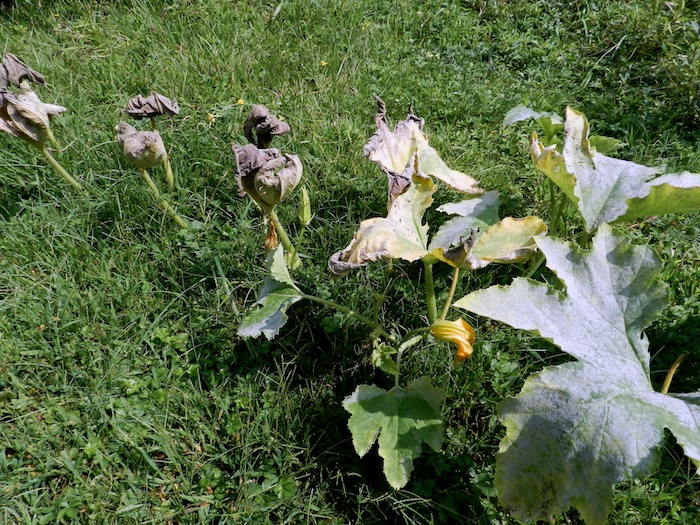
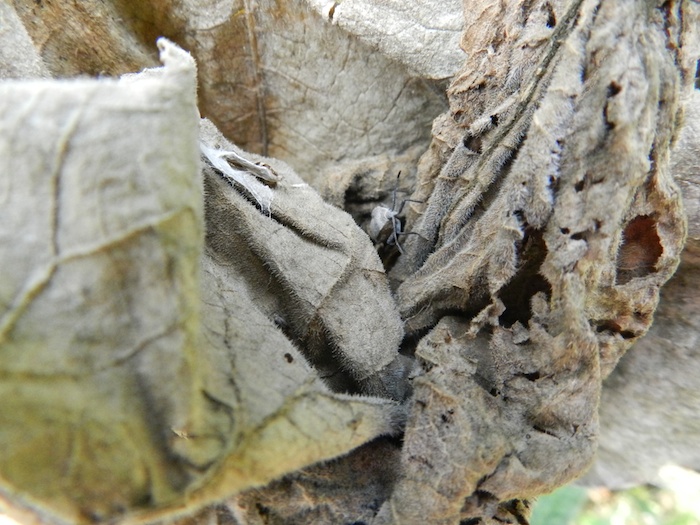
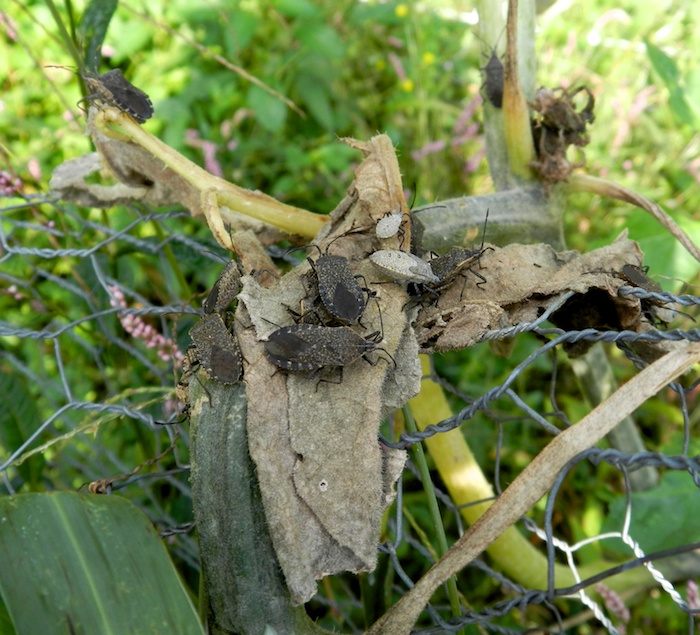
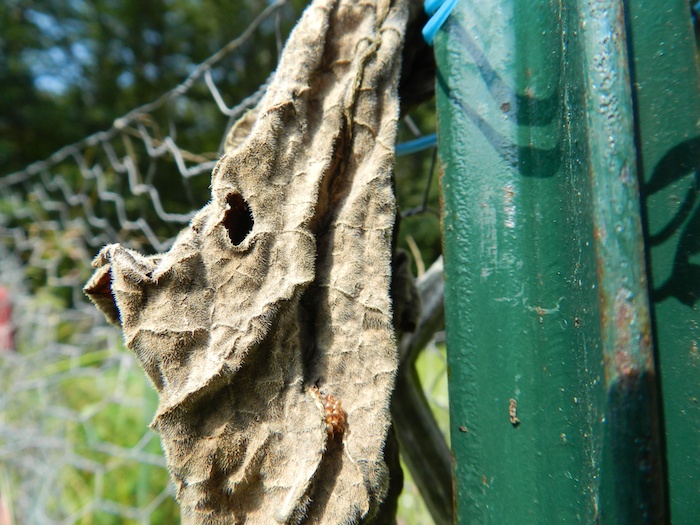
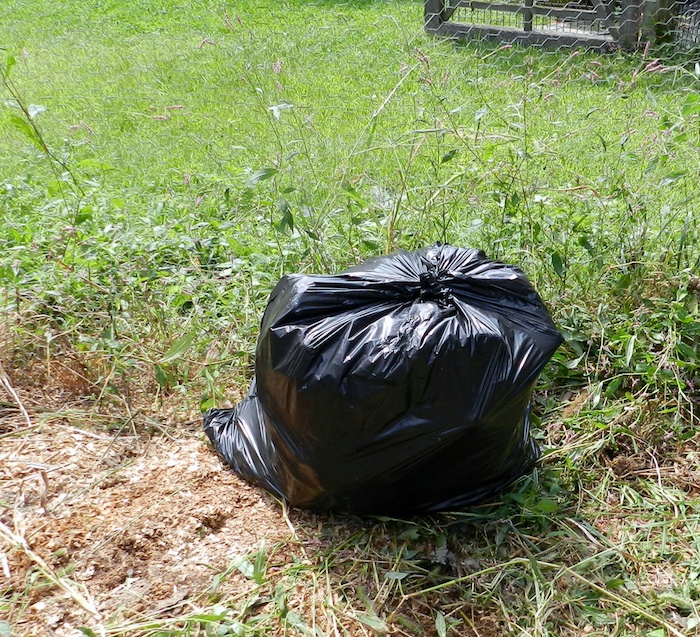
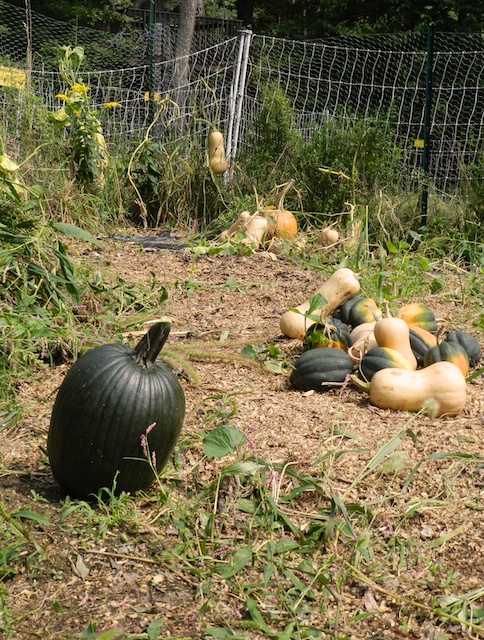
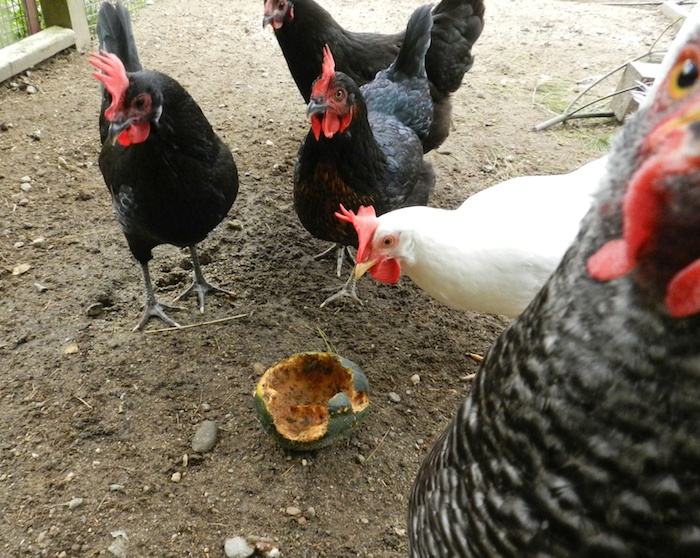

The black pumpkin is awesome.
I was thinking the same thing! Only isn’t it dark green? That would make an excellent jack o’ lantern.
Sadly, it is dark green and not ripe. I have wanted to grow the new, colorful varieties of pumpkins, though.
Ugh, sorry about all your squash. But glad the girls are helping you to not let them go to waste.
What will you change about your plot next year other than the plastic mulch?
Weed, weed, weed. Space out the plants, and leave room near the gate so that I can get into the patch!
Such a shame the chickens don’t like those bugs–would have been a fitting demise for them! My best memory of stink bugs is one sprayed my big toe many years ago. That nasty color on the nail never went away. The nail had to grow it out.
Might try planting a cover crop to smother your weeds in that bed ;)
I read about somebody who taught his chickens to eat bugs they normally don’t like. It worked and his garden is now happy again. I’m not sure how he taught them.
It looks like your butternut squash did alright. Do the girls like to eat the bug eggs? Or are they too nasty too?
I’m told that butternut squash have thicker stems and so the borers don’t do them in.
I think that butternuts are not bothered by squash vine borers because their stems are thinner and denser than those of pumpkins, zucchini and most other winter squash.
Had to scratch my head as if someone said “lice” at school when I read the remark about being too nasty for the hens. This is how we learn what to do and not do. Love that you share.
Yeah, first rule of IPM: monitor!
Funny thing about mulches, I’m reading an interesting if poorly written book, “Weeds: Guardians of the Soil” (Joseph A. Cocannouer) which has the solution for every farming mishap: let the weeds grow! Although, so far there’s no mention of this being helpful in dealing with insect pests, just poor soils and erosion.
BTW, thanks for the borer fact sheet!
With gardening there’s no one right way :)
We were not bothered this year by stink bugs and only had one squash vine attacked by borers. I have been spraying squash stems alternate weeks with a mixture of BT (Bacillus Thuringiensis var. Kurstaki) and insecticidal soap, and Spinosad and insecticidal soap. Unlike some other organic pesticides (Pyrethrin, Neem, Rotenone), BT, Spinosad and soap are described as being non-toxic to mammals, amphibians, fish, birds, etc. BT and Spinosad are derived from naturally occurring soil bacteria that are toxic to certain bugs, including some of the nasty ones that eat your veggies!
I think those things are what we use to call “Stink Bugs” growing up. Do they produce a awful smell when touched?
I was thinking the same thing, Ken. Looks like the Stink Bug to me. One of Maryland’s invasive species… My chickens won’t eat them. They are a “bugger” to get control of, too. Good Luck. Best advice is to hand pick them off and drop into a bottle of soapy water. No pesticides have been proven to kill them, not that I’d go that route anyway.
Yep, stink bugs, and there’s not a single stage that the hens eat. My garden is too big to hand pick the bugs (well, if I did, I wouldn’t have time to write my blog!)
Makes you grateful you can drive to grocery store. Imagine the “good ol’ days” when a crop like that meant you went hungry in the winter!
I have no romantic versions of times past. It’s nice to pick and chose.
Love the photo of the chicken eye-balling the camera!
A fellow here in Lancaster, Pa. has a patent on a stink bug catcher that works. The bugs do their damage mostly at night so he made a clear plastic tube filled with lights and the out side of the tube is covered with sticky tape so that’s the last place the bug will ever go after it lands on the tube. He hangs them in the trees but we sat them in the garden. It looked pretty lighted up and it did the job.
I’m a big believer of sticky tape. Good use for it!
WOW!!! having the same problem with wilting winter squash here in the Portland, Oregon area. I’m going to check for the nasty bug as soon as I get home from work! Thanks for sharing. We grew 5 squash plants…they looked GREAT all summer. I left for a week of vacation, came back and they looked like they were dead! I was so bummed.
And it always happens that right when crops ripen, that I have to go away for the week.
squash vine borers and squash bugs are always a problem in my garden. This year I squashed as many as possible and scraped eggs off leaves and mashed them to smittereens, but they still carry on. Next year I will try some of these tips suggested here.
Neem Oil is the organic pesticide listed by many sources as most effective on Squash Bugs. It is derived from the Neem Tree, native to the Indian Subcontinent. It is not as benign as some organic pesticides like soap or BT, It is non-toxic to mammals, birds and bees but it can be an irritant. It has a low level of toxicity to fish. Bonide and Monterey are manufacturers and you can find it in most garden centers.
Be forewarned, it smells almost as bad as Squash/Stink Bugs !!!!
http://npic.orst.edu/factsheets/neemgen.html
I’ve been spraying neem oil all summer. It helped curb the cucumber beetles, but didn’t do a thing to help my summer squash. But, I’m not as consistent as you about spraying on a schedule.
We were going to put a 4 foot wide row of squash family plants in our fenced garden next year. We put down stone dust in the paths and have a pile of shredded bark awaiting. We had plans of using plastic mulch. Now, so much to reconsider! We do have a few guineas doing pest control – I wonder, will they eat squash bugs?
If your guinea eat the stink bugs, let us know!
That picture of the girls eating is so funny! Is that Veronica I see? Very cute/funny pic!!!
Veronica is a VERY funny bird. She comes running/waddling/bock-bocking whenever she sees me. She flaps and sometimes gets liftoff. Bold and curious, but not a lot of commonsense.
Ugh, I fought a losing battle with squash bugs last year, I tried spraying with mint Castile soap and squashing the squash bugs, eventually gave up & yanked the plants out. I decided not to plant any squash this year to see if I can starve them out. Time will tell.
Questions: Have any of the black hens started laying? I see Owly does a lot of yelling when she’s in the nesting box. Are the eggs getting any darker in color as they mature?
One of the brown egg layers has started, but I haven’t seen which one. Has anyone seen Nancy in the nesting box? She should be maturing right about now.
I have seen one of the darker hens in the nest box, but I couldn’t really tell which one it was. It could have been Nancy, but I can’t say for sure. That was yesterday. Broody Betsy got tired of waiting for her to finish up and climbed in there with her. All I could see of her in the nest box was a bit of her white tail up against the black hen.
This as my first at trying winter squash. I ad te exact same problem you talk about in this post. Didn’t realize something was wring until too late. Unfortunately I sent know I was supposed to bag this. I threw it in the compost. It sat in the garden to the side for a few days before going to the compost. I am organc. I wonder what I can do to recent this bugs next year.
Meant wonder what I can do to prevent these bugs next year Darn auto spell correct!
Same here in Indiana. Those dang bugs ate all my zuchinni, pumpkins and cucumbers. I squashed them, picked off eggs and burnt the debris. I had thought about purchasing guinneas too as pest control. *sigh*
So stink bugs are actually squash vine borers?
It’s confusing. I thought that they were the same, but different stages. But, it turns out the the borers that destroy the stems mature into flying insects. The squash bug goes from eggs to stink bugs. No larva for the hens to eat.
Wow! Your temp outside is just killing me today. Congratulations and enjoy! I’m in Texas.
It’s this sort of perfect weather (breezy, cool, sunny) that makes everything else that New England throws at us worth it.
Apparentley the Hencam has turned to the Turkeycam this morning, with 3 wild turkeys making thier debut.
Lily and I both missed that!
I saw them too when I tuned in earlier (the turkeys). I didn’t know what they were though. How did they get into the goat’s area? If they flew in, I wonder why they didn’t just fly out, instead of hanging around the gate as if they were waiting to be let out?
They can fly, they are bold and smart, and they like grain and seeds.
So they were waiting for handouts then. :-)
They won’t get fed by me! Wild turkeys will get aggressive when given handouts. Lily finally got wind of the ones in the field and sent them on their way. Plenty of wild places for them right across the street.
Just saw Nancy getting into the nest box, so I’m guessing she’s your brown egg layer.
I am curious how do you get Phoebe to bed? She loves the evening. I have never been tuned in when that happens.
Thanks
Training! When she sees me closing the barns up at night, she knows to come inside for her one banana chip of the day.
I wondered if you were doing that just like you did with Candy.
Thanks